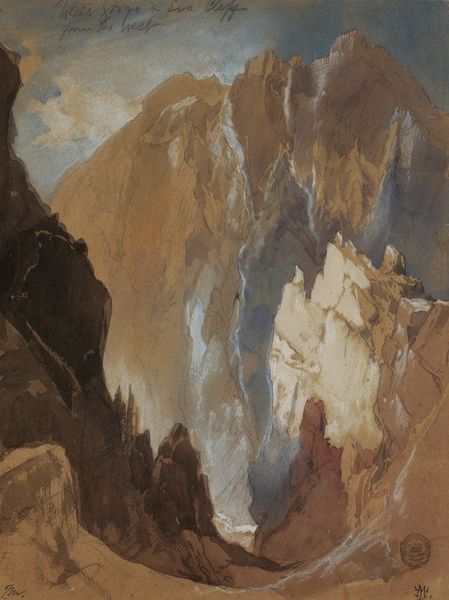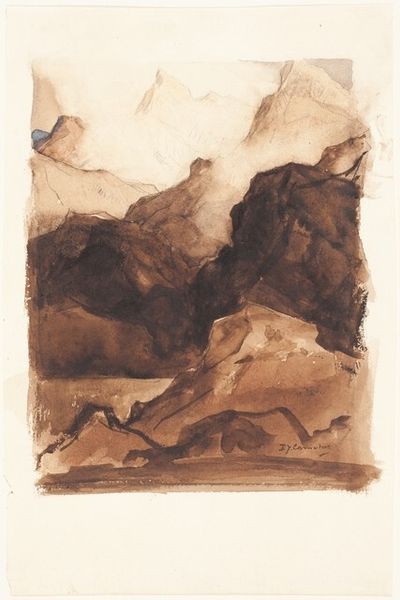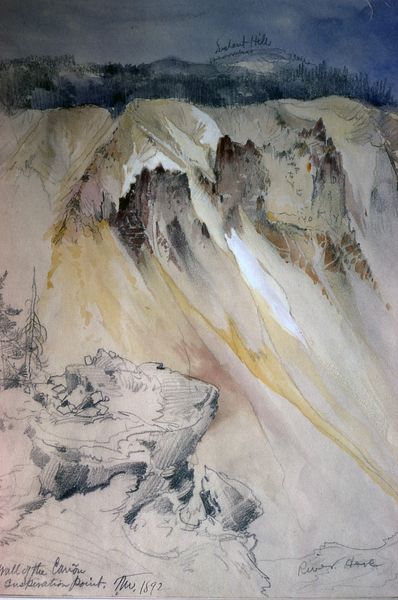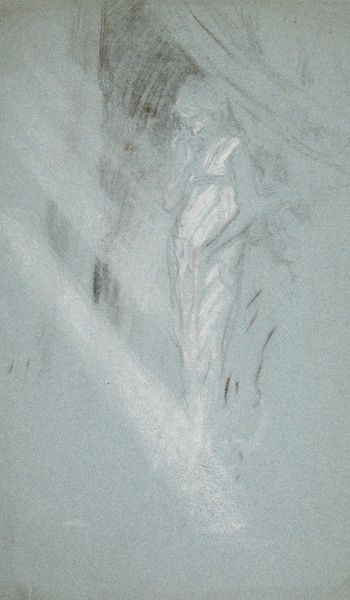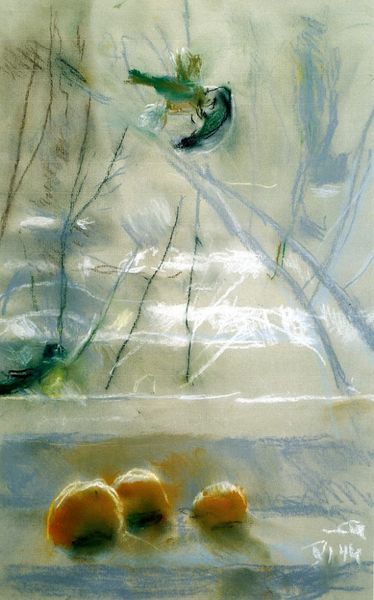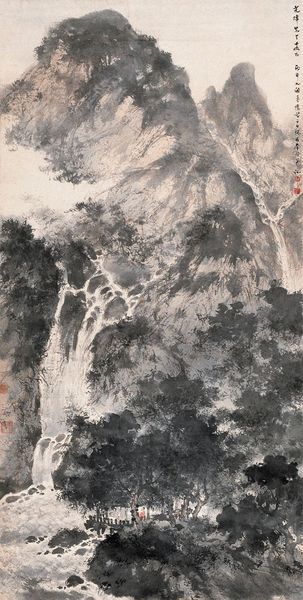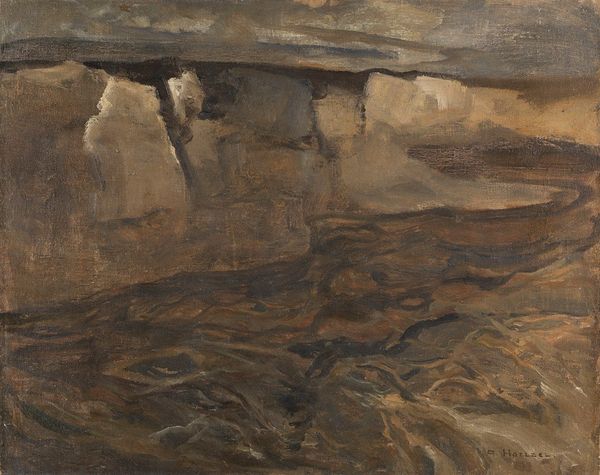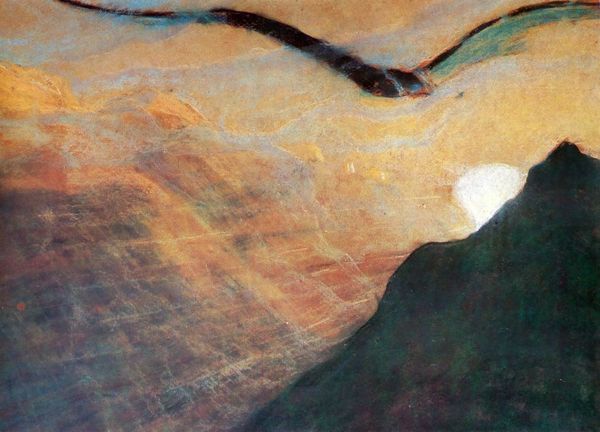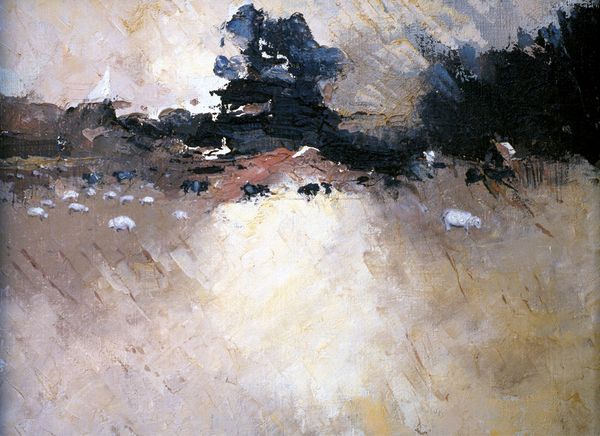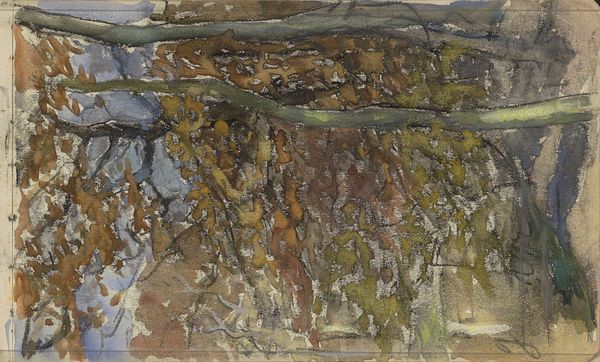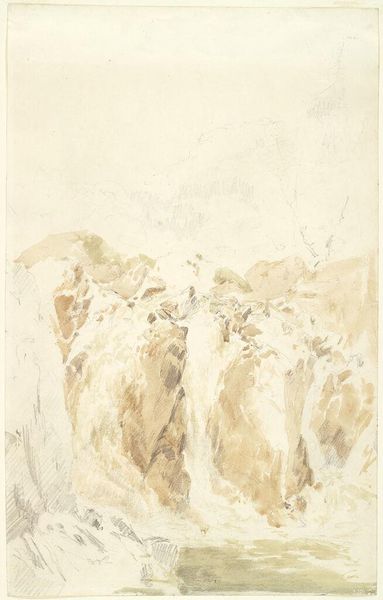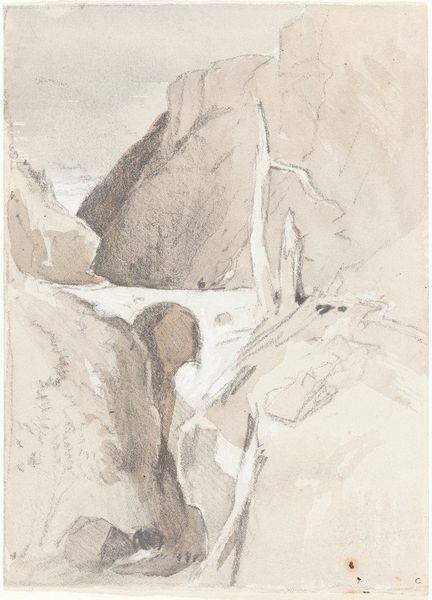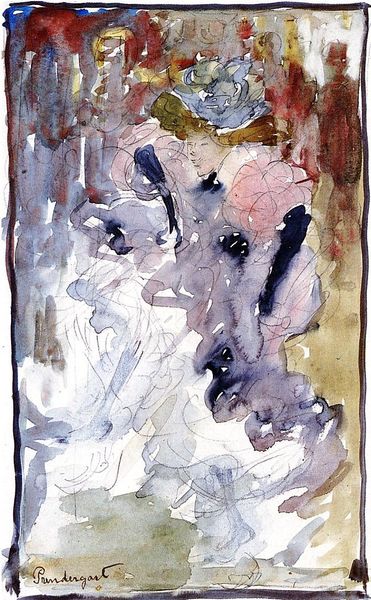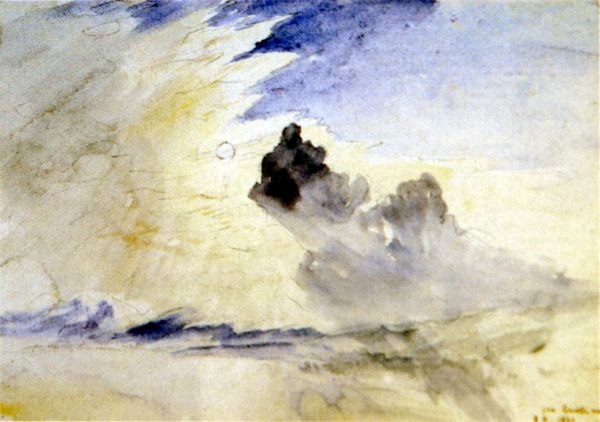
painting, plein-air, watercolor
#
painting
#
plein-air
#
landscape
#
oil painting
#
watercolor
#
rock
#
hudson-river-school
#
watercolor
#
realism
Copyright: Public domain
Thomas Moran created this watercolor sketch, "Canyon Walls, Yellowstone," in 1871. The walls of the canyon, rendered in soft washes, evoke a sense of depth and awe, common motifs in romantic landscape painting. The most striking element is the canyon itself, a motif laden with symbolic weight. Think of how canyons and gorges appear throughout art history as metaphors for the unknown, the passage through life, or the sublime confrontation with nature's power. We might recall Caspar David Friedrich's wanderers standing at the edge of abysses, contemplating their mortality. This is no different. The canyon, as a symbol, embodies a journey, both physical and spiritual. Its imposing form inspires awe and a touch of fear, reminding us of the untamed forces that shape our world and our inner selves. It's a powerful image that taps into our collective memory, resonating with our deepest feelings about existence and the world around us. This echoes through time, reappearing in various forms, each reflecting the era's psychological landscape.
Comments
No comments
Be the first to comment and join the conversation on the ultimate creative platform.
